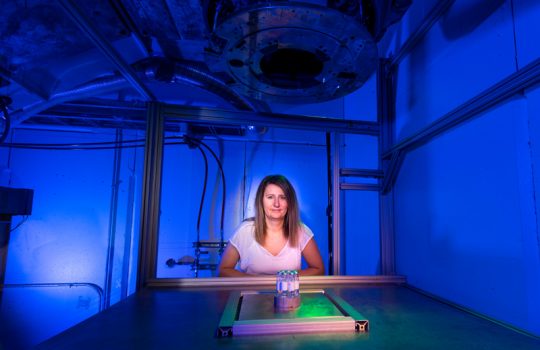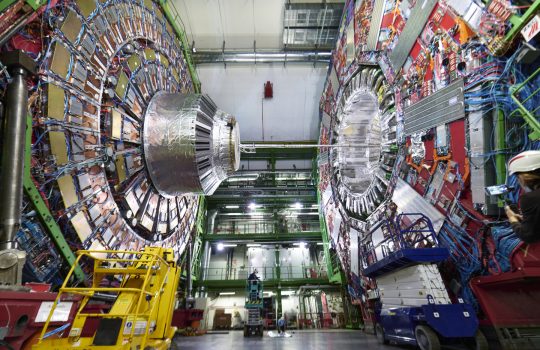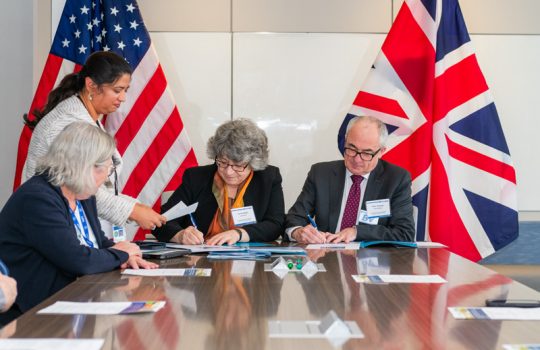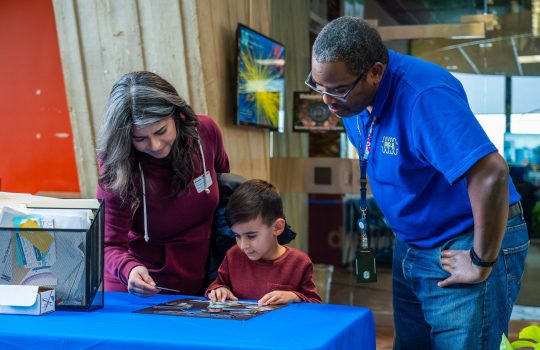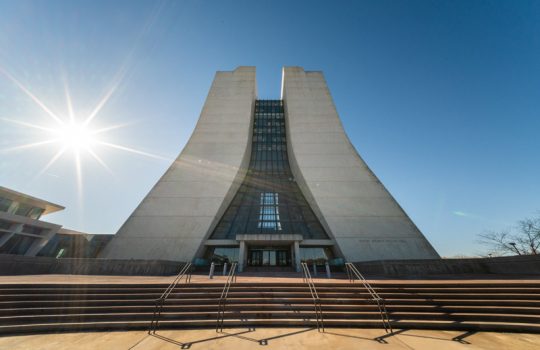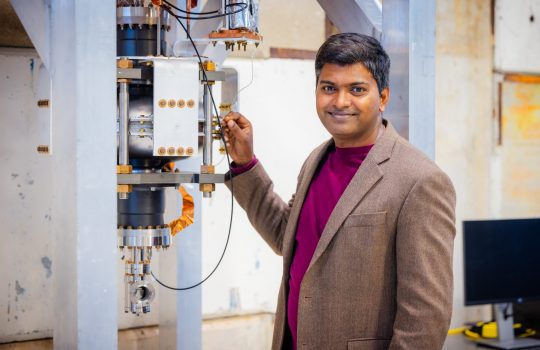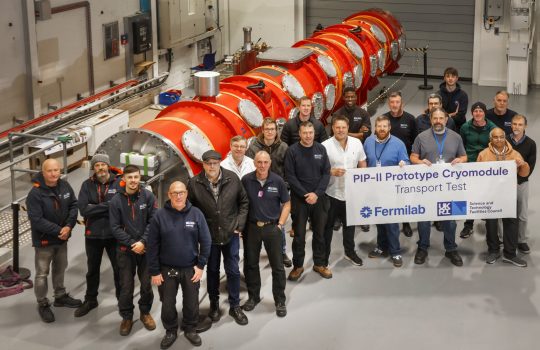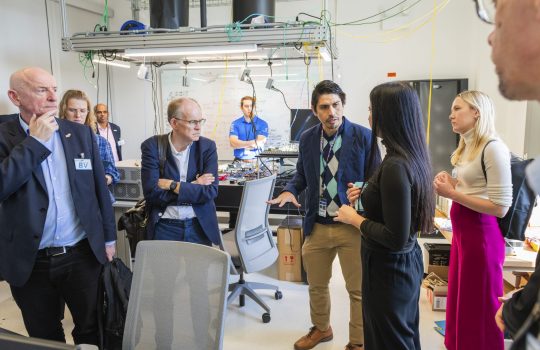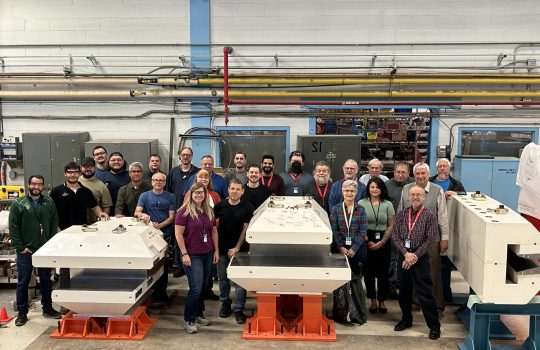Excavation of colossal caverns for Fermilab’s DUNE experiment completed
The excavation of the caverns that will house the gigantic particle detectors of the Deep Underground Neutrino Experiment in Lead, South Dakota is complete. Final outfitting of the colossal caverns will begin soon and make way for the start of the installation of the DUNE detectors later this year.


